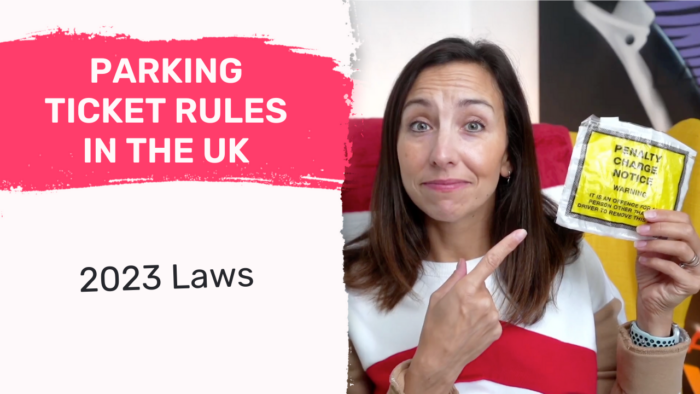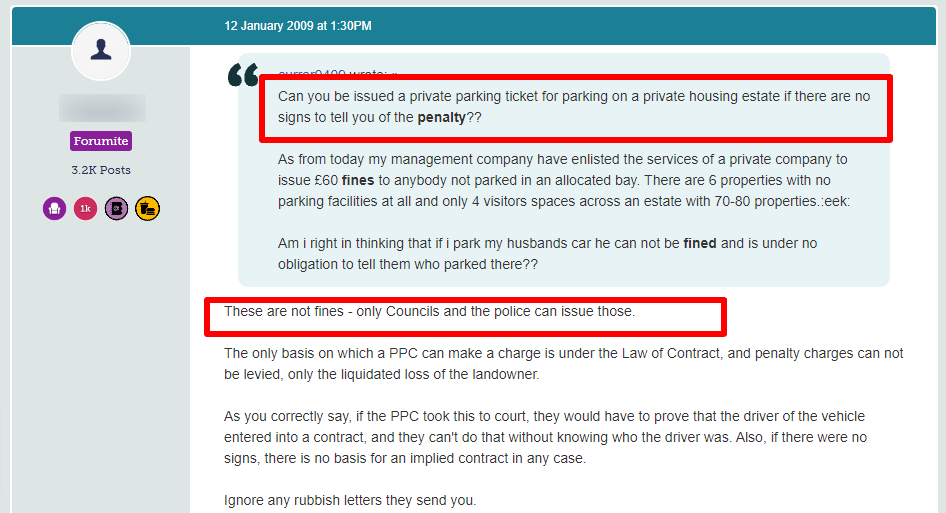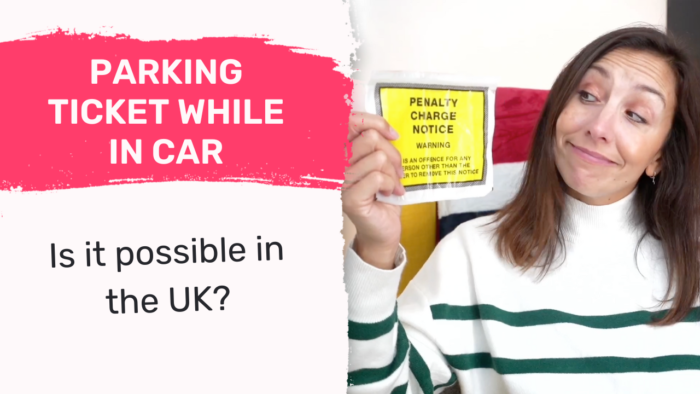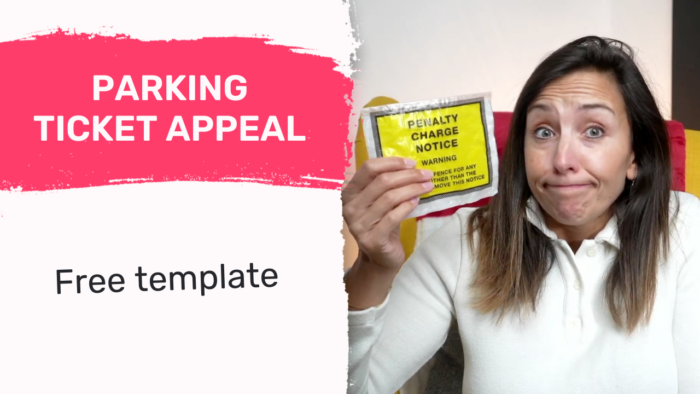What are the Parking Ticket Rules in the UK?

Are you worried about parking tickets in the UK? Don’t fret! Each month, over 32,000 people visit this site for guidance on tickets and fines. We’re here to help you understand the rules and what to do if you get a ticket.
In this article, we’ll share with you:
- The rules about parking in the UK.
- How to appeal a parking ticket and possibly win.
- The difference between private parking and council parking tickets.
- What happens if you don’t pay a parking ticket.
- Where you can find help if you need it.
We know it can be confusing and a bit scary to receive a parking ticket, as we’ve dealt with similar situations before. So, sit back, relax, and read on to learn how you can deal with parking tickets in the UK.
Most Ticket Appeals Succeed
In some circumstances, you might have a legitimate reason not to pay your fine.
It’s a bit sneaky, but the last time I needed legal advice, I paid £5 for a trial to chat with an online solicitor called JustAnswer.
Not only did I save £50 on solicitor feeds, I also won my case and didn’t have to pay my £271 fine.
Chat below to get started with JustAnswer
*According to Martin Lewis, 56% of people who try to appeal their ticket are successful and get the charge overturned, so it’s well worth a try.
Why Are We Given Parking Tickets?
The purpose of parking tickets is to enforce parking regulations and ensure that parking spaces are used properly. They are usually issued by local councils or parking enforcement agencies. These are some common reasons for parking tickets:
- Vehicles parked in violation of parking regulations often receive parking tickets. Typically, this involves parking in a no-parking zone, blocking a fire hydrant or driveway, parking in a disabled parking space without a valid permit, or exceeding the maximum parking time allowed.
- Vehicles without a valid parking permit or with an expired permit may receive a parking ticket if parking permits are required.
- A parking area with time constraints may have a parking meter with a specified duration or a time-limited parking time. Tickets may be issued if a vehicle exceeds its parking time.
- Parking tickets can be issued for non-payment of parking fees or improper display of parking tickets or receipts in paid parking areas.
- Parking that obstructs traffic, blocks a roadway or poses a hazard to pedestrians may result in a parking ticket.
- Vehicles parked in loading zones or bus stops without proper authorisation may receive a parking ticket.
Is Parking Regulated in the UK?
In the UK, parking is regulated. Managing and controlling parking spaces, ensuring road safety, and maintaining traffic flow are all purposes of parking regulations. There can be varying regulations depending on the location and the local authority that enforces them. The following are some key aspects of UK parking regulation.
- To indicate parking restrictions and regulations, the UK uses traffic signs and road markings. Parking prohibitions, time restrictions, permit zones, loading zones, disabled parking spaces, and more are indicated by these signs and markings.
- In many UK areas, parking zones have defined parking rules and restrictions. A resident permit zone, a pay-and-display zone, a limited waiting zone, and a loading zone are all possible types of zones. Residents, businesses, and specific groups such as disabled individuals may need permits in certain areas.
- In areas with paid parking, parking meters, pay-and-display machines, or digital payment systems are used to collect parking fees. It is the driver’s responsibility to pay the prescribed parking fee and display the receipt in the vehicle.
- Parking regulations are enforced by local authorities, such as city councils or parking enforcement agencies. Parking attendants or traffic wardens patrol the streets, issue parking tickets (also known as Penalty Charge Notices), and enforce parking regulations.
- In the case of a parking violation, a Penalty Charge Notice (PCN) is typically issued to the vehicle owner. PCNs explain the violation, the fine amount, and how to pay or appeal the ticket.
Successful Appeal Case Study
Situation
| Initial Fine | £100 |
| Additional Fees | £171 |
| Total Fine | £271 |
The Appeal Process
Scott used JustAnswer, online legal service to enhance his appeal. The trial of this cost him just £5.
| Total Fine | £271 |
| Cost of legal advice | £5 |
JustAnswer helped Scott craft the best appeal possible and he was able to win his case.
Scott’s fine was cancelled and he only paid £5 for the legal help.
In partnership with Just Answer.
Private Parking Versus Council Parking Tickets
There are two types of parking tickets in the UK: private parking tickets and council parking tickets. The key differences between them can be summarised as follows.
Parking tickets issued by councils, also known as Penalty Charge Notices (PCNs), are issued by local authorities or parking enforcement agencies. On public roads, in council-owned car parks, or in areas with parking regulations enforced by the council, these tickets are issued for parking violations.
Parking tickets issued by the council have a legal basis and are enforceable. If a driver fails to pay or successfully appeals a council parking ticket, the council may pursue further action, such as increasing the penalty, taking the case to court, or employing other enforcement measures.
On the other hand, private parking tickets (or parking charge notices) are issued by parking companies or landowners. Most of these tickets are issued for parking violations on privately owned land, such as private car parks, shopping centres, and retail parks. Tesco car park, for example.
A private parking ticket, however, does not have the same legal authority as a council parking ticket. A private parking company must adhere to the terms and conditions displayed on signs in the private parking area in order to enforce tickets. Private parking tickets can be challenged in a civil court if a driver refuses to pay. However, the company must demonstrate a valid legal claim. In many cases, you can simply ignore a parking charge notice.

What Happens if You Do Not Pay a Parking Ticket in the UK?
The consequences of not paying a parking ticket in the UK can vary depending on the type of ticket and the authority issuing it. If you fail to pay a parking ticket, you could face the following consequences.
Council Parking Tickets (Penalty Charge Notices)
If you fail to pay a council-issued parking ticket, the penalty amount may increase. For unpaid tickets, councils typically impose higher penalties, and they may send you a reminder or a Notice to Owner requesting payment.
The council can take further recovery action if the penalty charge remains unpaid. A court order can be obtained to recover the outstanding amount, additional costs can be added to the fine, or a debt collection agency can be hired to handle the case.
In some cases, the council may immobilise or remove your vehicle if you fail to pay parking fines consistently. To prevent the vehicle from moving, a wheel clamp can be fitted (also known as a vehicle immobilisation device).
If all other attempts to recover the fine fail, the council may take legal action against you. Taking the case to court can result in a judge issuing a County Court Judgement (CCJ) to collect the fine. Your credit rating may be affected by legal action as well as additional costs.
Private Parking Tickets
In the event you fail to pay a private parking ticket, the parking company may hire debt collection agencies to recover the outstanding amount. Attempts may be made to collect the debt through letters or phone calls.
To pursue payment, private parking companies may take the matter to a civil court. The penalty must, however, be supported by a valid legal claim. You may be ordered to pay the outstanding amount plus court costs if the court rules in favour of the parking company.
Join thousands of others who got legal help for a £5 trial
Getting the support of a Solicitor can take a huge weight off your mind.
Reviews shown are for JustAnswer.
Can You Appeal Against a Parking Ticket?
Depending on whether you are appealing against a PCN or a private parking charge, the appeals process will naturally differ. Here is a brief outline of each process.
- There is a formal appeals process for council parking tickets. By following the specified appeals procedure, you can generally challenge a council ticket you believe was unfairly issued. In the event that your appeal is rejected, you can appeal to an independent body, such as the Traffic Penalty Tribunal or the Scottish Parking Appeals Service if you are in Scotland.
- There is also an appeals process for private parking tickets, but it differs from company to company. Both the British Parking Association (BPA) and the International Parking Community (IPC) provide independent appeals services to their members. You can typically appeal to either association’s appeals service if the private parking company is a member. Non-member companies may have less formal appeals processes and fewer options for escalation.
Hire a Parking Solicitor for less than a coffee.

If you’re thinking about appealing your parking ticket then getting some professional advice is a good idea.
Getting the support of a Solicitor can make your appeal much more likely to win.
For a £5 trial, Solicitors from JustAnswer can look at your case and help you create an airtight appeal.
In partnership with Just Answer.


